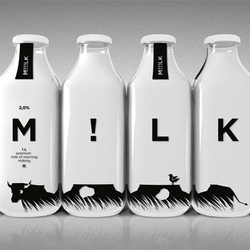The EU will ban the import of mixtures with Russian oil. What does it mean
The European Commission has provided clarifications on the embargo on Russian oil, which was introduced in early June. According to these explanations, not only oil from Russia in its pure form will be banned, but also as part of mixtures - the so-called blends, the use of which is quite popular in Europe.
If Russian and non-Russian oil is mixed, then the entire batch falls under the ban, the clarification says. The exception is the supplier's ability to clearly show which part of the batch was not produced in Russia, then this part will be allowed on the European market. At the same time, the EU allowed the import of oil products produced from Russian oil at foreign refineries into its territory.
RBC sent requests to the press services of the largest Russian oil companies - Rosneft, Lukoil and Gazprom Neft, as well as to the Ministry of Energy and Deputy Prime Minister Alexander Novak, who oversees the fuel and energy complex in the government.
How the ban on mixtures will affect supplies from Russia
It took the EU a month and a half to agree on a partial embargo on oil supplies from Russia. The decision on this was made during the summit in Brussels on 30 May. The ban was introduced from June with a transitional period (for oil until December 2022 and for oil products until February 2023) for contracts concluded before the embargo came into force and new one-time transactions on the spot market.
The embargo applies to offshore oil shipments, but not to exports through pipelines, through which EU members, including Hungary, Germany and Poland, received about a third of the oil. Germany and Poland independently decided to refuse any form of Russian oil supplies, so that by the end of the year it will be sent to the EU only through the southern part of the Druzhba oil pipeline, which accounts for 10% of the total volume of oil bought by the European Union from Russia, the HEAD of the European Commission explained Ursula von der Leyen.
The European Union agreed to a partial embargo on oil from Russia. What does it mean Business Myth or Reality Instructions Pro Participatory Capitalism. A global economy that works for progress how to evaluate and what to invest in first of all Articles Pro Telomere effect. Revolutionary approach to the younger,
Despite these sanctions and the Europeans' partial refusal of Russian oil immediately after the start of the special operation in Ukraine, traders and oil companies, including the Anglo-Dutch Shell, found a way to bypass such restrictions. Back in April, BLOOMBERG reported that they began trading in the so-called Latvian oil blend, which contains less than 50% of Russian Urals. The mixing of oil from different suppliers took place in the port of Ventspils, Latvia. Now, according to the explanations of the European Commission, the supply of such mixtures is also banned.
Blending (mixing oil from different producers) is almost mainstream when delivering to the EU, recalls Sergey Grishunin, managing DIRECTOR of the NRA rating service. “Before the Latvian mixture, Malaysian and Singaporean mixtures were actively used for Iranian products, but nothing prevents using the Russian one,” he says. However, due to clarifications from the European Commission, Russian oil companies will no longer have easy ways to circumvent sanctions in the form of using such mixtures when the tanker was supplied with oil from several sources, 50.1% of which was from non-sanctioned countries, Grishunin warns. According to him, this is bad, since now gray schemes will have to be used for deliveries, by analogy with Iran, which has been under various sanctions since 1979, which will cause a strong rise in the cost of logistics.
The European Commission also clarifies that, in principle, it may be permissible to mix a Russian oil product (commodity nomenclature code for foreign economic activity 2710) carried out in a third country with an oil product produced in this third country. The possibility of allowing such a mixture on the European market depends on the "share of the Russian component" - a case-by-case analysis is needed to make sure whether the mixture is considered to be of Russian or other origin, the EU points out. The general EU rules that companies must apply in this situation state that if two or more countries are involved in the production of a product, the last country involved must “substantially process or process” the product, and this work must also be “economically justified."
How much oil Russia supplied to the EU
In 2021, the EU countries imported about €32.7 billion worth of crude oil by sea, or 68% of all oil imports from Russia. For another €21.2 billion, Europe imported Russian oil products by sea. But official statistics do not disclose what part of oil supplies is in pure form, and what part is in mixed (in blends).
Oil and oil products are a key source of EXPORT earnings in Russia, accounting for almost 37% of all merchandise exports ($180 billion), according to FCS statistics for last year.
According to the Center for Research on Energy and Clean Air, in the first 100 days of the special operation in Ukraine (from February 24 to June 3, 2022), Russia received €93 billion from energy exports. The EU imported 61% of this volume, amounting to about €57 billion. €46 billion of €93 billion came from oil, €13 billion from oil products, €24 billion from pipeline gas, €5.1 billion from liquefied natural gas ( LNG), €4.8 billion for coal.
All the restrictions that have been introduced only raise the price of oil, says Alexei Antonov, head of the investment consulting department at Alora. And the export of Russian oil, like Iranian oil, continues, since there is a huge gap in understanding the technological nuances of mixing different varieties and their export and import in the heads of officials and technologists of these processes, he notes. So, Iran has been under sanctions for more than 40 years, and the export of its oil has not stopped. “New EU restrictions will not affect supplies from Russia in any way,” a source in the government told RBC. “This will only lead to a shortage of oil in Europe, which will have to pay a premium for raw materials.”
Sanctions at one time significantly affected Iranian oil exports: if in mid-2018 the country exported 2.6 million barrels. per day, after the US withdrawal from the multilateral deal on the Iranian nuclear program and the resumption of US sanctions against Tehran's oil sector, oil exports fell to 0.4 million barrels. per day in May 2019 and recovered only to 1.1 million barrels. in April 2022, according to the American non-profit organization UANI.
Against the backdrop of continued demand abroad, oil production in Russia began to recover after falling in March-April 2022, Novak said during the St. Petersburg International Economic Forum. “In June, we almost reached the level of February. Then we produced 10.2 million barrels. per day, in March-April was reduced to about 9 million barrels. Now, in June, we have an average of 9.9 million barrels,” he said.
Can the new restrictions be bypassed?
Oil traders will find a hundred tricks to mix different grades under various pretexts so that it will be impossible to separate and distinguish the original grades later, Antonov believes. In addition to the Latvian mixture, there are many others, as well as ways to “launder” oil, when, for example, raw materials are purchased, processed into diesel fuel, and diesel fuel is already exported to the EU, he says.
It is enough to add at least 1-2% of oil from another producer to the Russian Urals for formality, and this will be a new grade, the expert continues. According to him, the creation of a new variety is more of an administrative procedure than a marketing one. “It is impossible to name where this is done and how, this is a carefully guarded know-how,” Antonov says. “All over the world, grades are mixed with each other during export, this allows you to control the sulfur content and density, eliminate the difficulties of pumping heavy oil through pipelines.”
The Ministry of Finance disclosed the average price of Urals oil Economics
Chemical methods are not used to assess the origin of oil, as this will greatly complicate operations with it and, obviously, make it more expensive, Grishunin notes. Basically, you can track the location of oil tankers. “There is a certain risk from using reconnaissance satellites to search for tankers, but it is difficult, expensive, and it is unlikely that anyone will seriously do this,” he doubts.
Another loophole to circumvent the new EU restrictions is the European Commission's clarification allowing the import of petroleum products produced in third countries from Russian oil, Rachel Zimba, founder of the research company Ziemba Insights, told RBC. Countries to watch for potential exports of Russian refined oil are India, CHINA and Turkey, she said.
Since February 2022, sales of Russian crude oil to Europe have fallen by 554 thousand barrels, according to the Norwegian company Rystad Energy. per day. But Asian buyers increased the volume of purchases by almost 400 thousand barrels during the same time. (from 1.14 million in January-February to 1.517 million in March-May). Deliveries of Russian oil to India in April 2022 (the latest data from the Indian Ministry of Commerce) compared to April of the previous year increased three times in physical terms (up to 1.62 million tons) and 5.7 times in monetary terms, up to $1, 28 billion. Exports to China set a record 8.42 million tons in May (up 55% from May 2021), according to Chinese customs data. As a result, Russia overtook Saudi Arabia as the main supplier of crude oil to Beijing, reports REUTERS.
According to economists at the Institute of International Finance (IIF), by the end of 2022, Russia will be able to redirect 20-40% of the oil destined for Europe to China, Elina Rybakova, deputy chief economist at the IIF, told RBC.
However, the situation with the redirection of Russian crude oil supplies from Europe to Asia is now complicated by the shortage of oil refining capacities in the world. “At the global level, the lack of refining capacity is now felt even more than in crude oil, which has led to a jump in the price of petroleum products and a sharp increase in the margins of refiners. But certain players in the EU and the US are willing to be patient as long as it limits Russian export earnings,” Zimba concludes.



























































